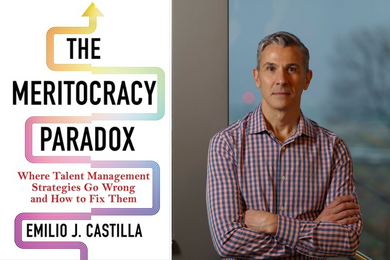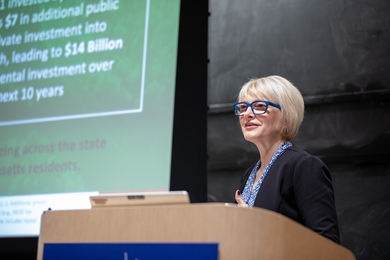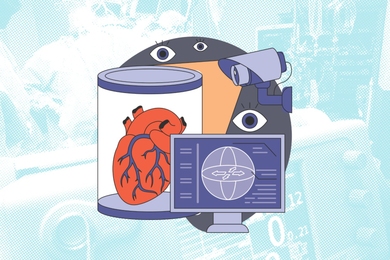Just before quantum mechanics came into being in the 1920s, physics was in trouble. Most research centered around measuring physical properties, with no theoretical framework to back it up.
Relativity, which describes the physics of very fast and very massive objects, and quantum mechanics, which describes the physics of very small objects, were developed to account for the cracks beginning to show in our understanding of the physical world. Now considered the foundation of all chemistry and biology, quantum mechanics allows us to understand the structure of atoms and molecules and how light interacts with them.
Daniel Kleppner, the Lester Wolfe Professor of Physics and associate director of the Research Laboratory of Electronics, gave the 2000 Richard C. Lord lecture May 2 on "One Hundred Years of Quantum Physics." Professor Kleppner is widely recognized for his contributions to atomic physics and, with colleague Thomas J. Greytak, for work leading to the Bose-Einstein condensation of hydrogen.
The ninth Lord lecturer and the first from MIT, Professor Kleppner provided an engaging history of quantum physics, which he variously called "strange," "weird" and "one of the really important intellectual achievements in science."
Quantum mechanics evolved in the 1920s because of a confluence of brillliant minds -- among them Wolfgang Pauli, Werner Heisenberg, Erwin Shrodinger and Max Born -- that Professor Kleppner likened to the times that spawned the framers of the US Constitution and the ancient Greek philosophers.
Quantum mechanics, by leading to the information and electronic revolutions, has transformed the world, he said. It has allowed us to ask questions about the evolution of the universe that "we couldn't dream of addressing before.
"Quantum mechanics is unique in its radical nature," Professor Kleppner said. "No other theory has changed the way we look at things and caused us to abandon concepts that were sacred." All this from a theory that many still have trouble swallowing. Paraphrasing Nils Bohr, he said, "Quantum mechanics works, even if you don't believe in it."
The problem is that quantum mechanics is not very intuitive and in fact contradicts much of Newtonian mechanics. The good news for those who dislike formulas full of foreign-looking symbols is that no quantum mechanical effects should be noticeable on a macroscopic level, so Newtonian mechanics is still acceptable for everyday applications and measurements.
The Richard C. Lord Lecture is sponsored by the Department of Chemistry and the George H. Harrison Spectroscopy Laboratory in honor of the late Dr. Lord, whose application of Raman spectroscopy to biomolecules opened a new field of research. He was director of the Spectroscopy Laboratory from 1946-76 and had a major impact on the development of the lab.
A version of this article appeared in MIT Tech Talk on May 10, 2000.





